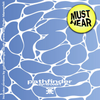Syntrovert’s Latest EP Makes Experimental Dance Music Feel Like a Fantasy Video Game
On 'Pathfinder,' the emerging Chilean innovator unites deconstructed bass, tribal, and pan-Latin sounds for a narrative-driven adventure.

The internet, as you may have heard, can connect anyone, anywhere. Thus it was that in 2016, a 16-year-old producer in Santiago, Chile, began releasing music that, within a few years, was blowing minds in Buenos Aires, Mexico City, Los Angeles, Cologne, and beyond. Syntrovert—a reclusive transgender producer and DJ who uses she/they pronouns—has an impressively wide range. They make relaxed, loungey techno (see last year’s EP Movimiento) just as well as they alchemize EDM and reggaeton earworms into mystical incantations, with the help of blurred-lines takes on dubstep and trance (see their March release Ediciones Oceánicas). They’ve made what they call “hyper-dancehall” and “nuevo house,” on conceptual records that tell sonic stories about the creative process and what they call “futuristic epic battles.” On 2018’s Sword, metal sabers clink against the forceful crashes of vogue beats.
Syntrovert’s mad-genius approach to synthesizing genres has resulted in a steady clip of releases on underground netlabels like Argentina’s Avga, as well as appearances on L.A.-based web radio station Dublab and its German counterpart. This year alone, she’s released six EPs and two singles on her personal label, Orca Electronics, while DJing parties on the Chilean coast and in Mexico City. Her newest EP, the masterful Pathfinder, was released in October by Mexican rave-slash-label Terminal, whose community includes Avga co-founder El Plvybxy and the veteran Chilean artist Imaabs. Syntrovert belongs to a vast web of cutting-edge Latin American producers whose diaspora reaches—and is heard—around the world.





